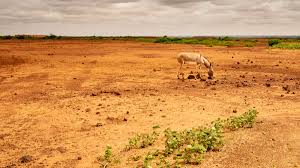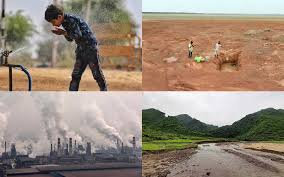Climate change poses significant challenges globally, and the Northern Region of Ghana is no exception. First, rising temperatures directly affect local weather patterns. Consequently, the region experiences longer dry seasons and unpredictable rainfall. This variability disrupts farming activities, leading to reduced crop yields.
In this blog, we will cover several key topics. We will examine the effects of rising temperatures on the region. We will explore how altered rainfall patterns impact agriculture. We will also delve into the challenges faced by farmers and livestock.
Additionally, we will address issues surrounding water availability and management. The relationship between climate change and public health will be analyzed as well. Finally, we will look into the economic and social effects of climate change, including impacts on livelihoods and potential migrations.
Effects of Climate Change on the Northern Region
The Northern Region of Ghana is experiencing significant effects due to climate change. These impacts are affecting agriculture, water resources, and the overall livelihood of the communities in the area. Below are the key effects:
1. Temperature Variability
- Rising Temperatures:
The region is experiencing increased temperatures, which can lead to heat stress in both humans and livestock.
- Lengthened Dry Seasons:
There is a noticeable increase in the length and severity of dry seasons, impacting agricultural practices.

2. Altered Rainfall Patterns
- Irregular Rainfall:
Changes in rainfall patterns lead to unpredictable rainy seasons, making it difficult for farmers to plan planting and harvesting.
- Increased Intensity of Rainfall:
When rain does occur, it can be more intense, leading to flash floods and soil erosion.
3. Impact on Agriculture
- Crop Yields:
Changes in temperature and rainfall can result in reduced crop yields, particularly for staple crops like maize and millet.
- Pest and Disease Proliferation:
Warmer temperatures and humidity can increase the prevalence of pests and diseases that affect crops.
4. Water Scarcity
- Limited Water Resources:
The region faces challenges with water scarcity, exacerbated by prolonged dry spells and over-extraction of water resources.
- Decreased Surface Water:
Wells, dams and streams in the region may experience reduced water levels, affecting both human consumption and agriculture.
5. Livestock Challenges
- Heat Stress in Livestock:
Increased temperatures can lead to heat stress, reducing productivity and reproductive rates in livestock.
- Feed Scarcity:
Climate changes can affect the availability of natural forage, leading to feed shortages.

6. Human Health Risks
- Health Impacts:
Increased temperatures and changing rainfall patterns can lead to outbreaks of diseases, such as malaria and cholera.
- Food Security Issues:
Reduced agricultural productivity can lead to food insecurity, affecting nutrition and health.
7. Socioeconomic Impacts
Climate change may force people to migrate from rural areas to urban centres in search of better opportunities, leading to urban overcrowding.
- Conflict over Resources:
The scarcity of water and arable land can lead to conflicts between communities.
READ ALSO: Top 10 Vocational and Technical Institutions in the Northern Region
Ghanaian Youth are the Country’s Greatest Asset – USA-based Chief







